Introduction to Kyoto Sangyo University
Overview
Kyoto Sangyo University (Kyoto Sangyo University, referred to as "Kyoto Sangyo University") is a private comprehensive university located in Kyoto City, Kyoto Prefecture, Japan. It was founded in 1965. The school was founded by the famous astronomer Dr. Araki Shunma. It is a comprehensive university that concentrates all departments and research departments of humanities, natural sciences and social sciences on the same campus. Kyoto Sangyo University has significant characteristics in academic research, international exchanges and talent training, especially in engineering, business and law.
Campus
The main campus of Kyoto Sangyo University is located in Kamigamomotoyama, Kita-ku, Kyoto City. The specific address is as follows:
Address: 〒603-8555 1 Kamigamomotoyama, Kita-ku, Kyoto City
Educational philosophy
Kyoto Sangyo University adheres to the educational philosophy of "freedom and creativity" and is committed to cultivating talents with rich humanistic qualities and professional skills. The school emphasizes the combination of theory and practice, and focuses on cultivating students' practical operation ability and ability to solve practical problems. The school is committed to cultivating professional talents who can play an important role in various fields.
Disciplines and Faculties
Kyoto Sangyo University has the following faculties and disciplines:
Faculty of Law
Department of Law
Faculty of Economics
Department of Economics
Faculty of Business Administration
Department of Business Administration
Faculty of Science and Engineering
Department of Mechanical Engineering
Department of Electrical and Electronic Engineering
Department of Information Engineering
Department of Applied Chemistry
Department of Biology
Faculty of Human Sciences
Department of Psychology
Department of Human Environment
Faculty of Foreign Languages
Department of English
Department of Chinese
Department of International Relations
Graduate School
Graduate School of Law
Department of Law
Graduate School of Economics
Department of Economics
Graduate School of Business Administration
Department of Business Administration
Graduate School of Science and Engineering
Department of Mechanical Engineering
Department of Electrical and Electronic Engineering
Department of Information Engineering
Department of Applied Chemistry
Department of Biology
Graduate School of Human Sciences
Department of Psychology
Department of Human Environment
Graduate School of Foreign Languages
Department of English Studies
Department of Chinese Studies
Department of International Relations
Specialized Courses
Department of Law: Learn the basic theories and practical skills of law and cultivate professional lawyers who can work in law firms, courts and government agencies.
Economics: Learn the basic theories and practical skills of economics, and cultivate professional economists who can work in financial institutions, enterprises and government departments.
Business: Learn the basic theories and practical skills of business, and cultivate professional managers who can work in enterprises, consulting companies and government departments.
Mechanical Engineering: Learn the basic theories and practical skills of mechanical engineering, and cultivate professional engineers who can work in manufacturing, R&D institutions and engineering companies.
Electrical and Electronic Engineering: Learn the basic theories and practical skills of electrical and electronic engineering, and cultivate professional engineers who can work in the fields of power, communication and electronic equipment manufacturing.
Information Engineering: Learn the basic theories and practical skills of information technology, and cultivate professionals who can work in the fields of software development, network management and data science.
Applied Chemistry: Learn the basic theories and practical skills of applied chemistry, and cultivate professionals who can work in the fields of chemical industry, materials science and environmental protection.
Biology: Learn the basic theories and practical skills of biology, and cultivate professionals who can work in the fields of biotechnology, pharmaceutical research and development and environmental protection.
Psychology: Learn the basic theories and practical skills of psychology, and cultivate professionals who can work in the fields of psychological counseling, psychotherapy and mental health education.
Human Environment Discipline: Learn the basic theories and practical skills of human environment, and cultivate professionals who can work in the fields of urban planning, environmental protection and sustainable development.
English Discipline: Learn the basic theories and practical skills of English, and cultivate professionals who can work in the fields of international communication, translation and education.
Chinese Language Discipline: Learn the basic theories and practical skills of Chinese, and cultivate professionals who can work in the fields of Sino-Japanese communication, trade and education.
International Relations Discipline: Learn the basic theories and practical skills of international relations, and cultivate professionals who can work in diplomacy, international organizations and multinational companies.
Practical Teaching
The school has advanced experimental equipment and laboratories, providing students with rich practical teaching resources. Students can master the practical operation skills of various disciplines through experiments and internships. The school has also established cooperative relationships with many companies, research institutions and government departments, providing students with rich internship and practice opportunities.
Ranking
Kyoto Sangyo University has a high reputation in the fields of engineering, business and law, especially in mechanical engineering, electrical and electronic engineering and economics. The school also performs well in graduate employment rate and student satisfaction.
Fees
Admission fee: about 200,000 yen
Tuition fees:
Faculty of Law, Faculty of Economics, Faculty of Business Administration: about 800,000 to 900,000 yen per year
Faculty of Science and Engineering: about 1 million to 1.2 million yen per year
Faculty of Human Sciences, Faculty of Foreign Languages: about 800,000 to 900,000 yen per year
Specific fees may vary. It is recommended to contact the school directly for the latest information.
Campus
Kyoto Sangyo University has a beautiful campus with complete facilities, including modern teaching buildings, laboratories, libraries and sports facilities. The school also has student dormitories to provide convenient living conditions for out-of-town students.
Contact information
Tel: +81-75-705-1437
Fax: +81-75-705-1438
Email: admission@ksu.ac.jp
Other information
Internship opportunities: The school has established cooperative relationships with many companies, research institutions and government departments, providing students with abundant internship and practical opportunities.
Employment support: The school has a career guidance center that provides students with employment consultation, resume writing guidance, interview skills training and other services to help students find jobs smoothly.
International exchange: Kyoto Sangyo University actively participates in international exchange projects and has established cooperative relationships with universities in many countries to provide students with opportunities for overseas study and exchange.
Scholarship system: The school has a variety of scholarship systems to help students reduce their financial burden.
-
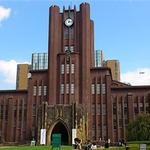
The University of Tokyo
-
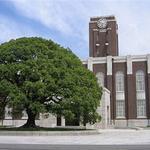
Kyoto University
-
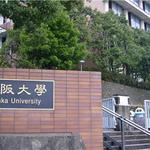
Osaka University
-
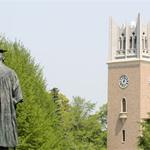
Waseda University
-
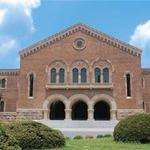
Hitotsubashi University
-
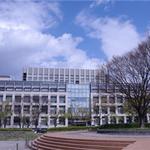
Nagoya University
-
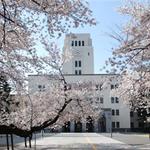
Tokyo Institute of Technology
-
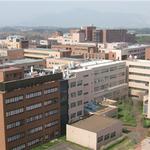
University of Tsukuba
-
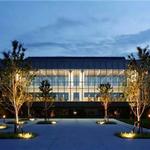
Keio University
-
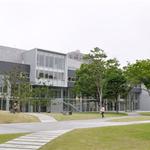
Tohoku University
-

Mesoamerican University
-

Istmo University
-

Mariano Galvez University of Guatemala
-

Regional University of Guatemala
-

Galileo University
-

Francisco Marroquín University
-

Rafael Landívar University
-

University of the Valley of Guatemala
-

University of San Carlos of Guatemala
-

Technological Institute of Tlaxcala Plateau
-

Golfo University
-

Technological University of South Sonora
-

Technological University of Huejotzingo
-

Tizimín Institute of Technology
-

Chilpancingo Institute of Technology

